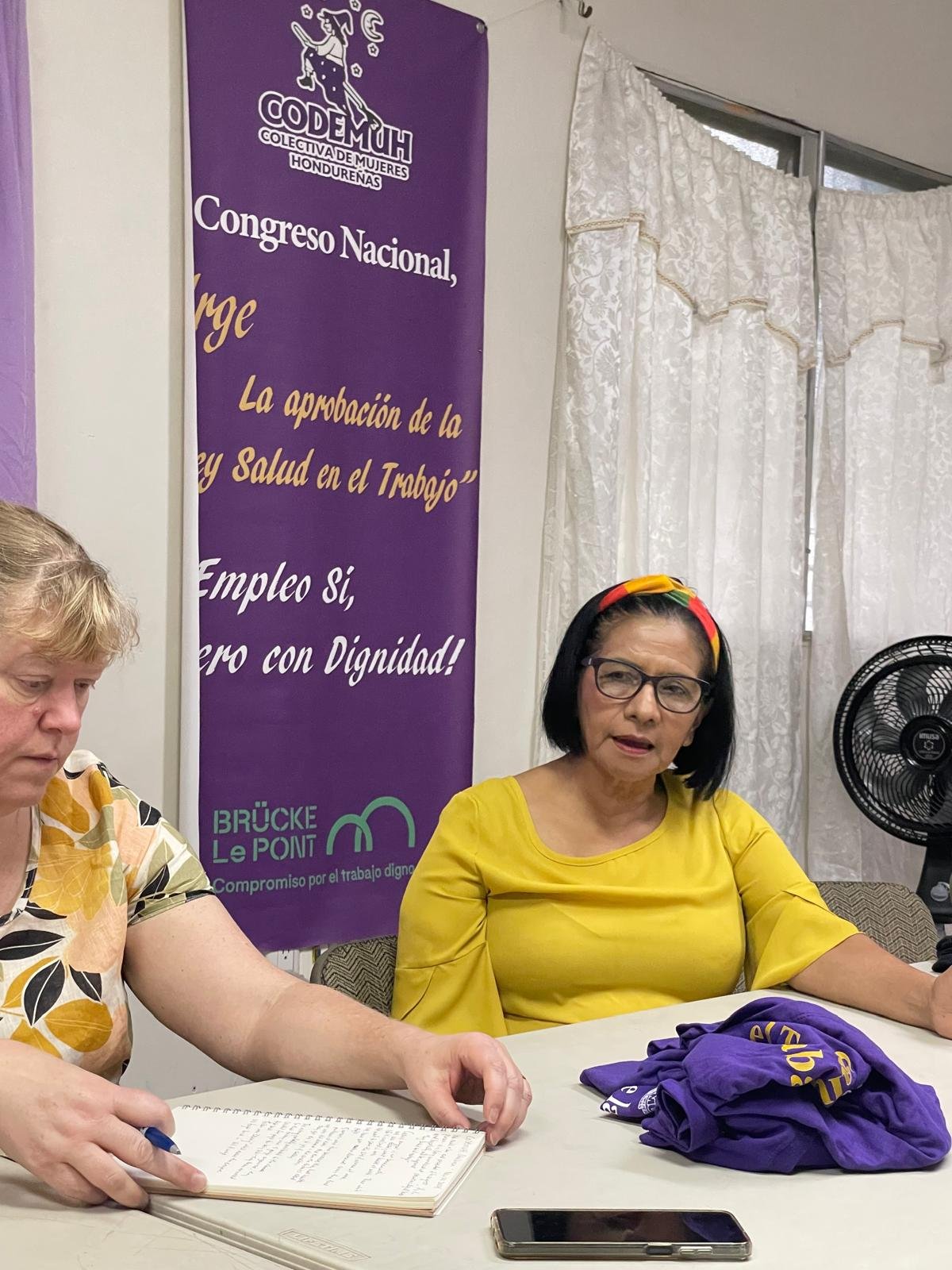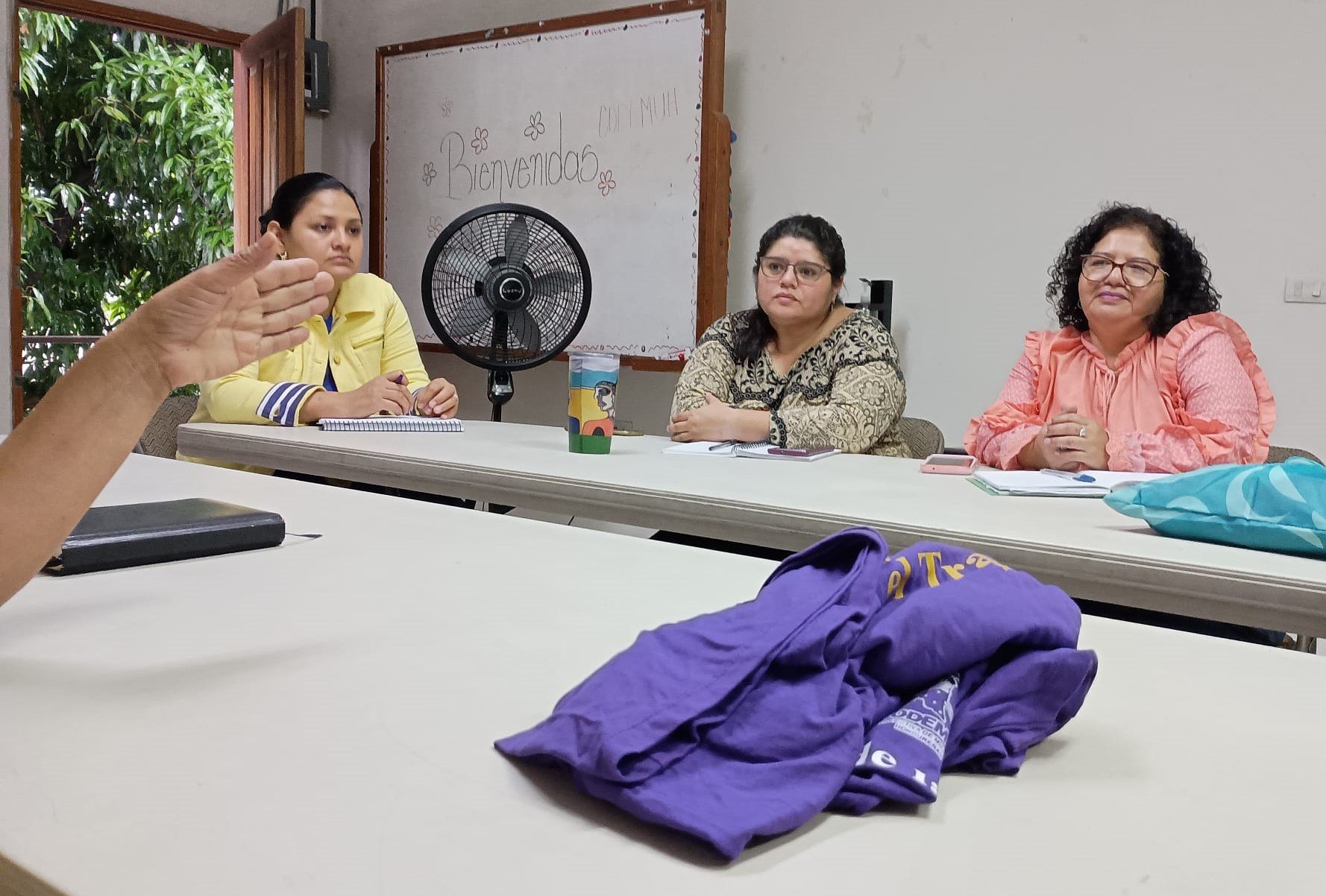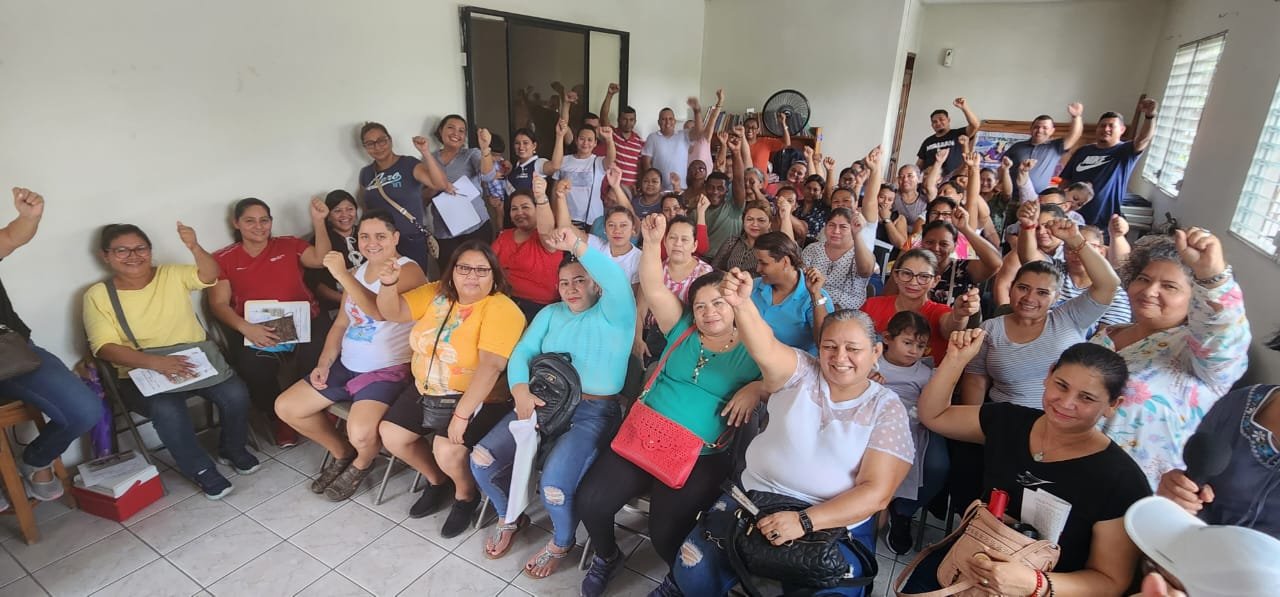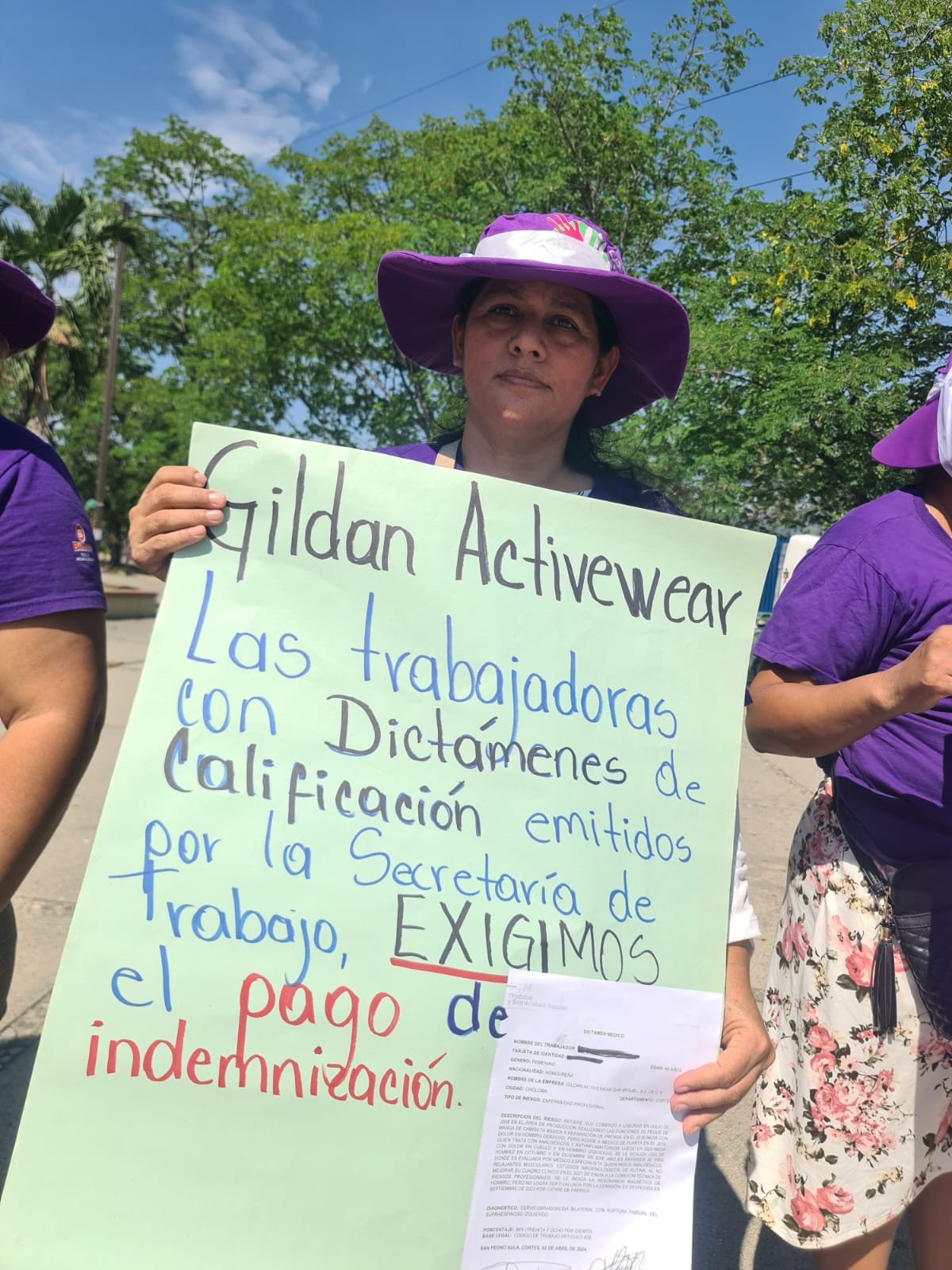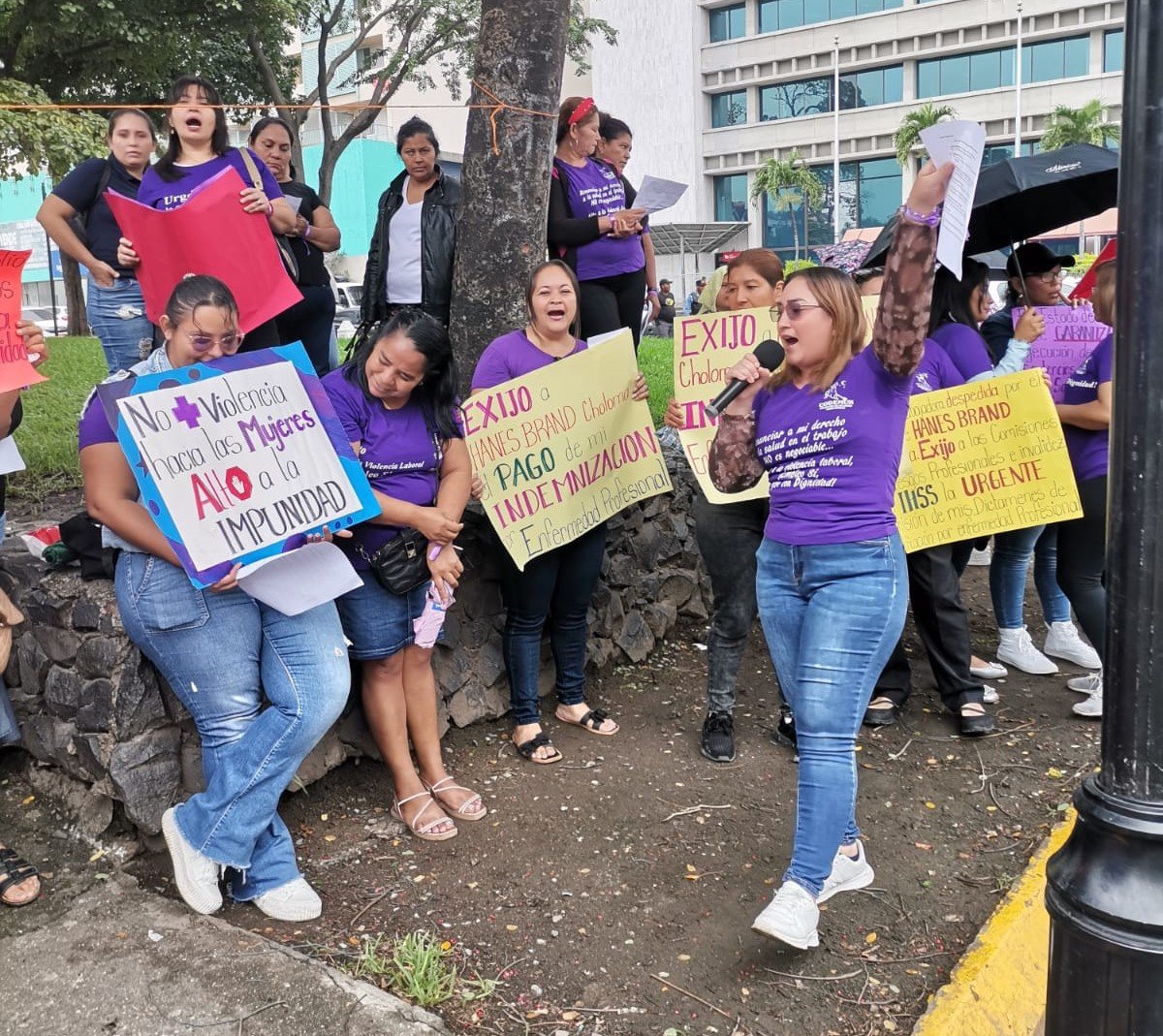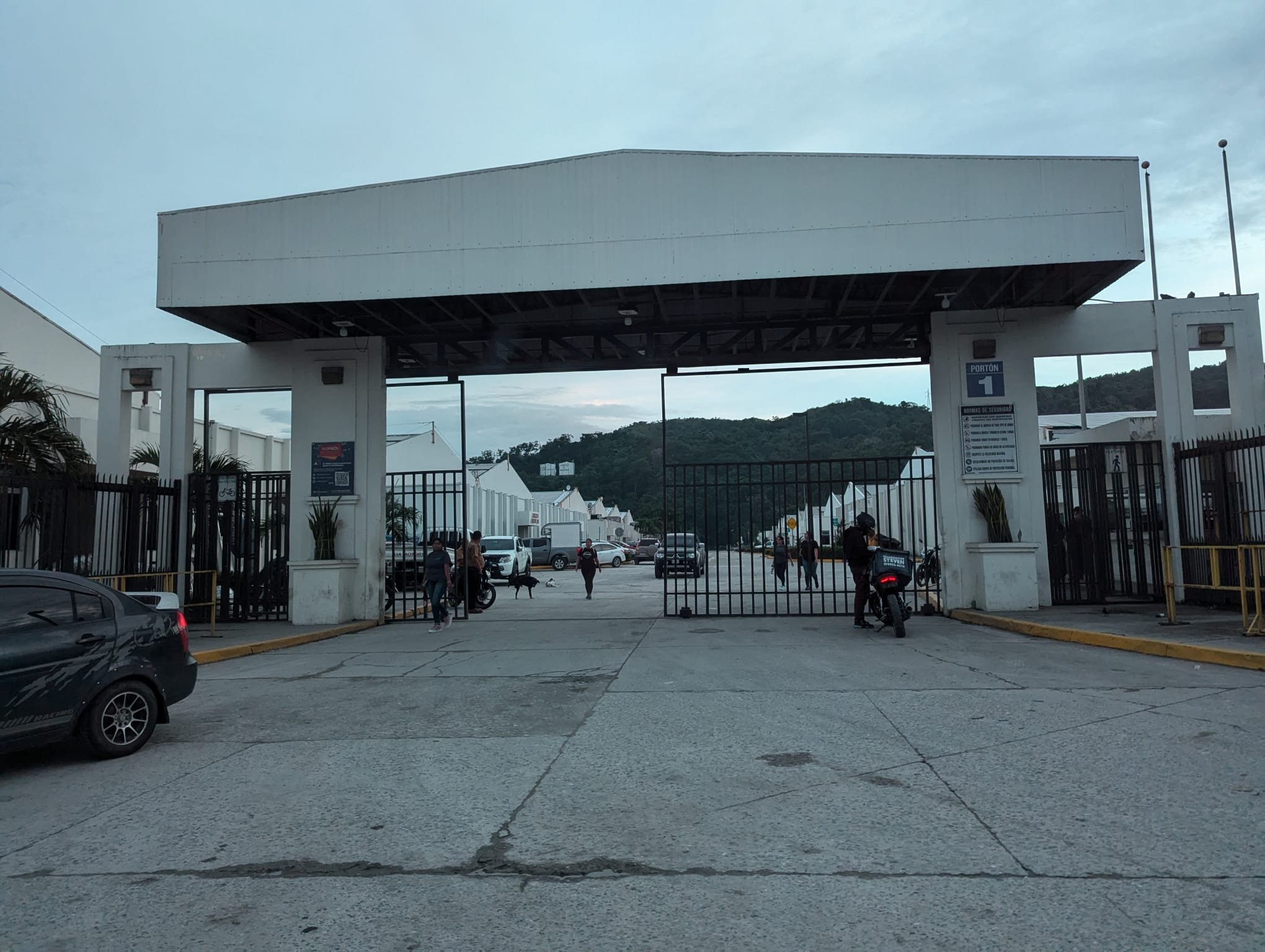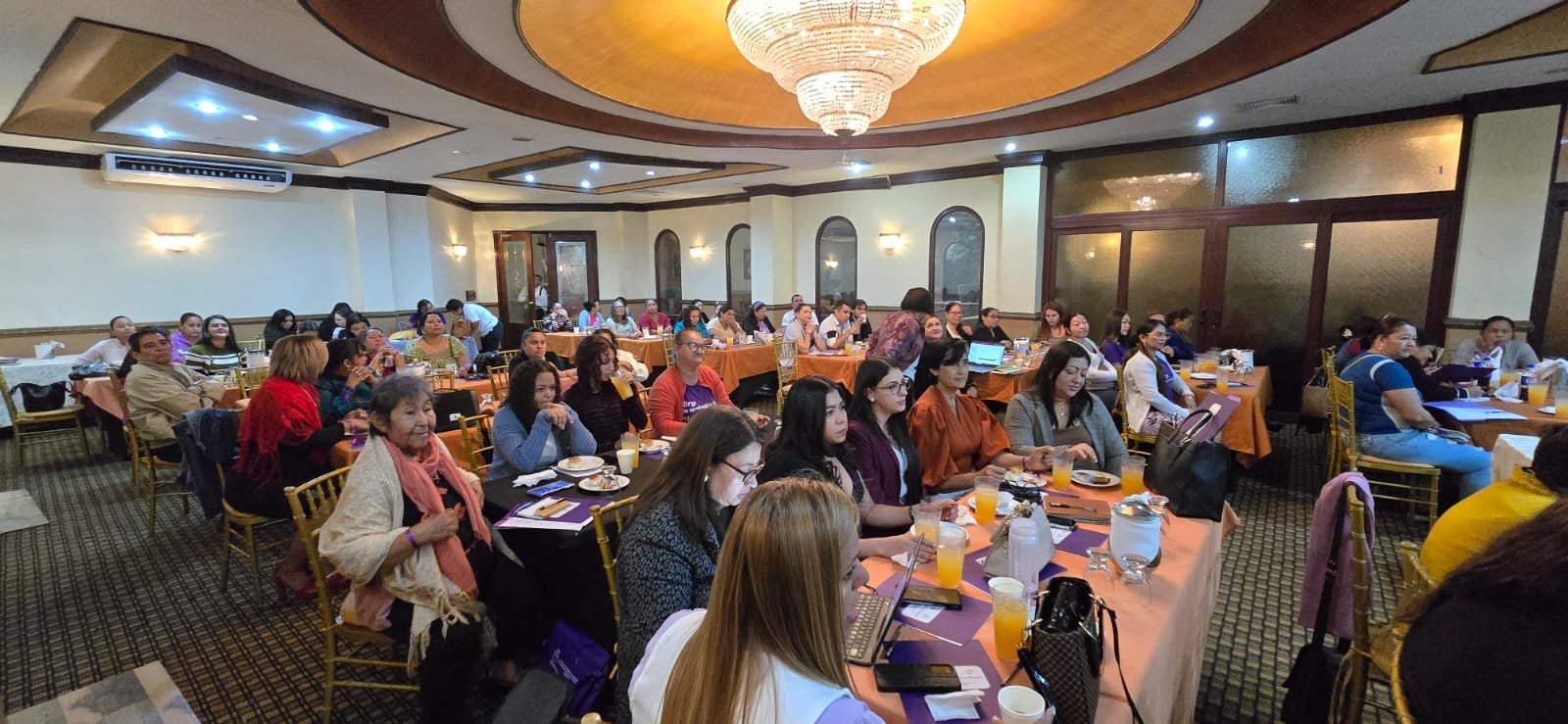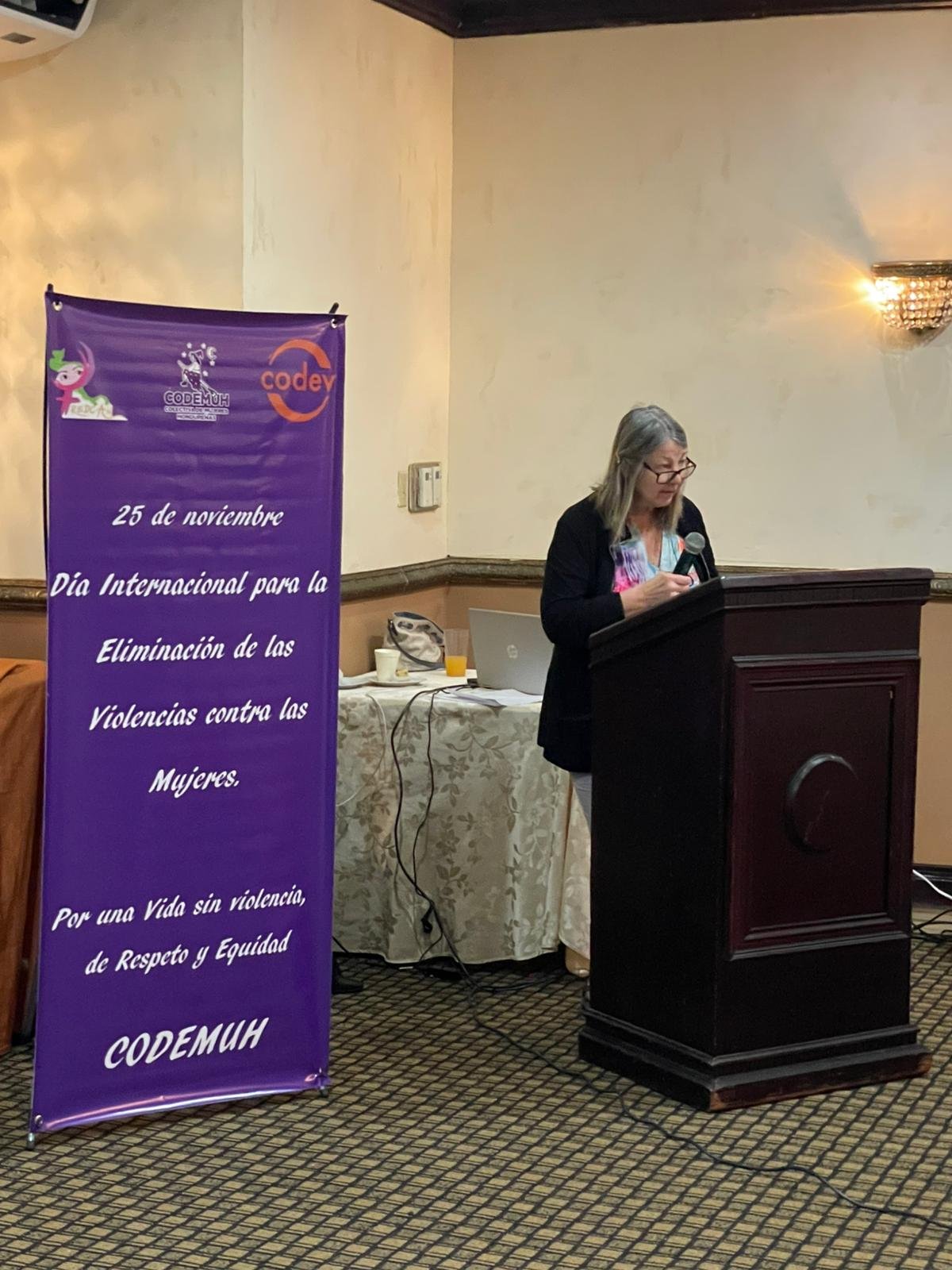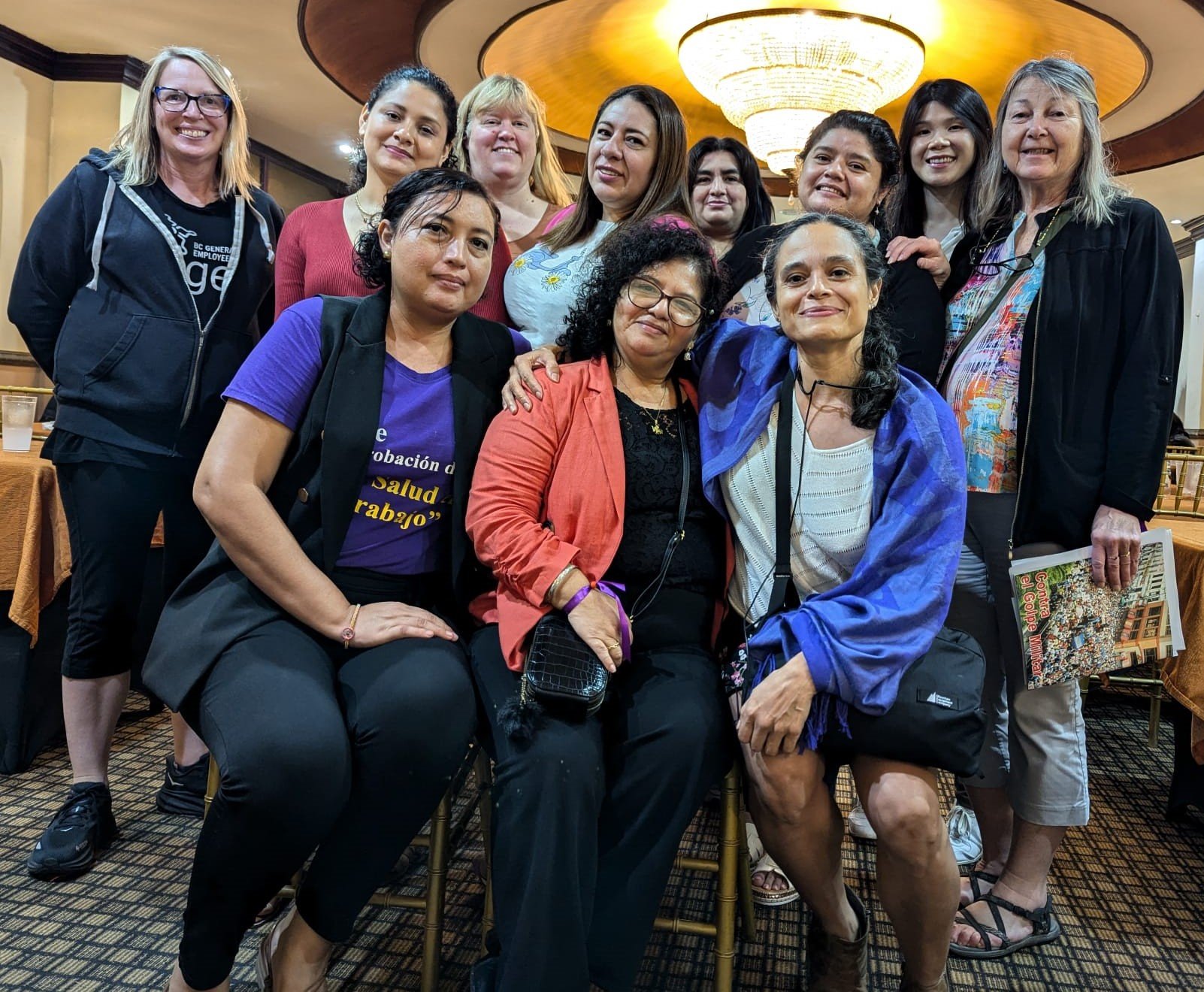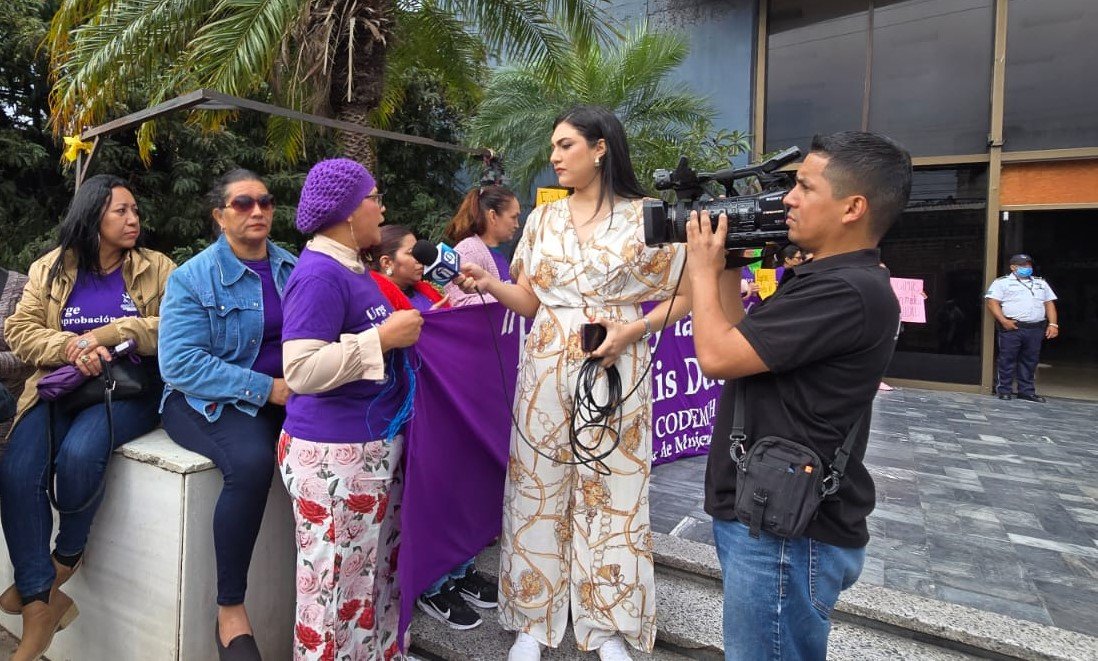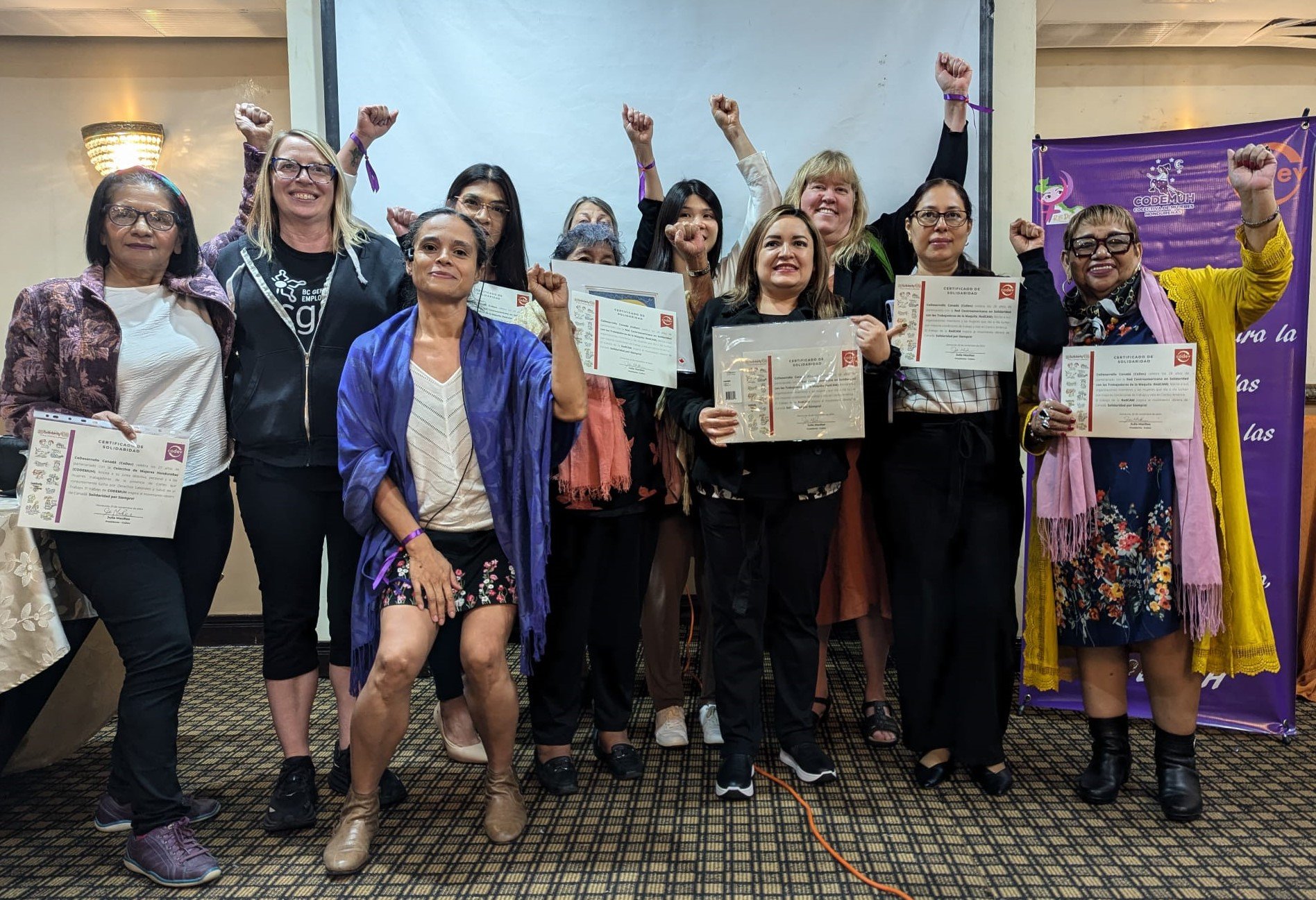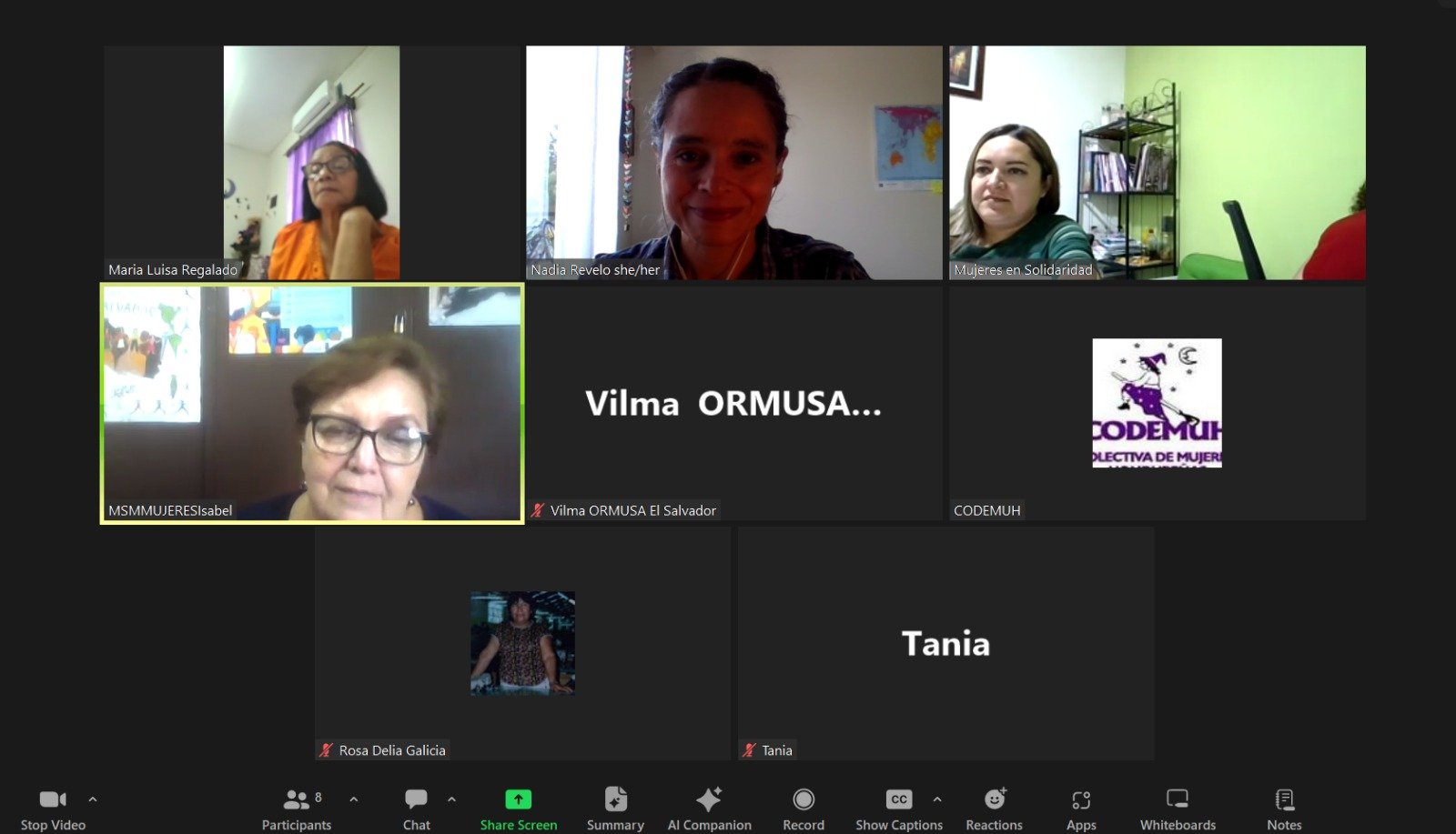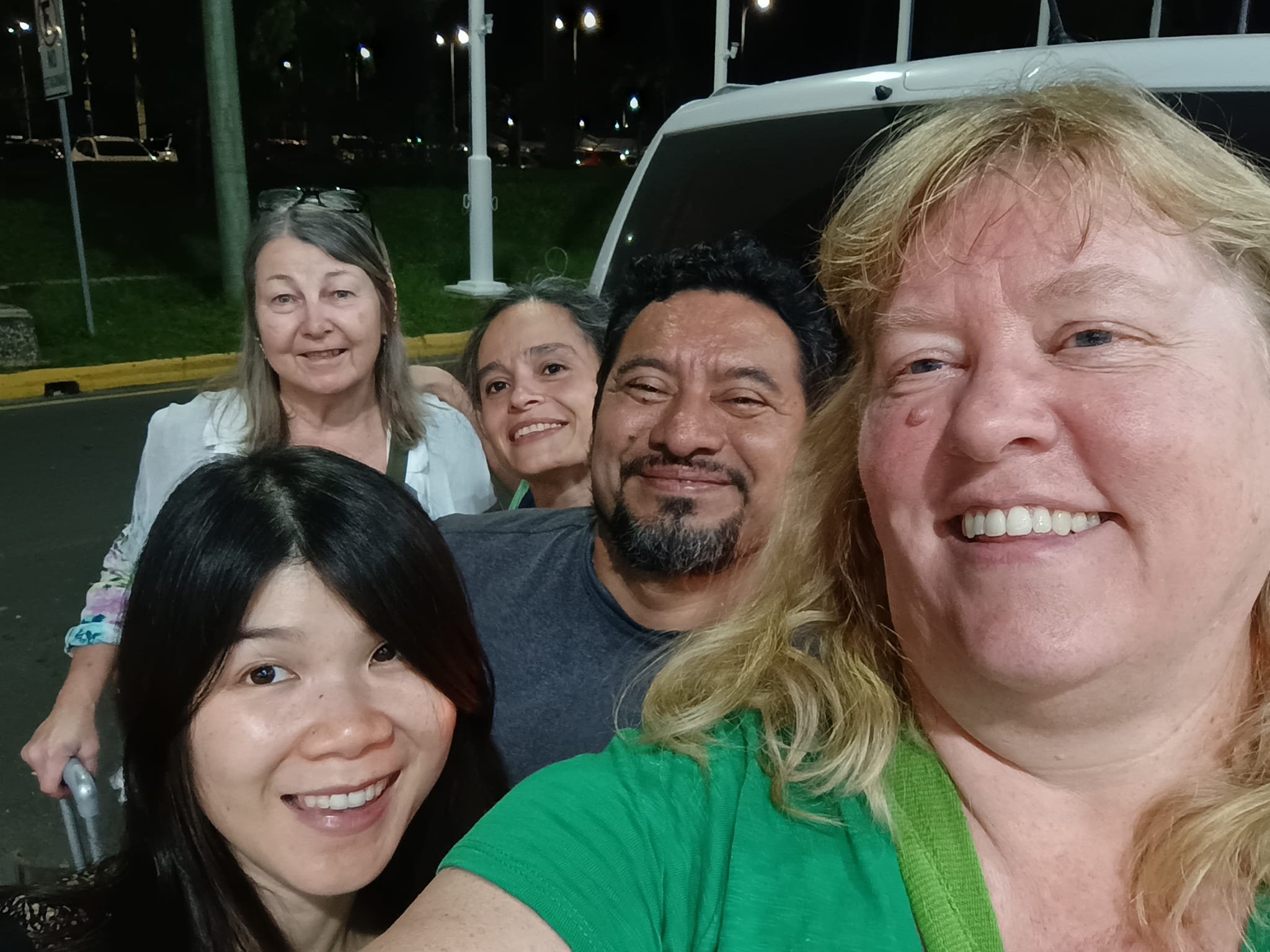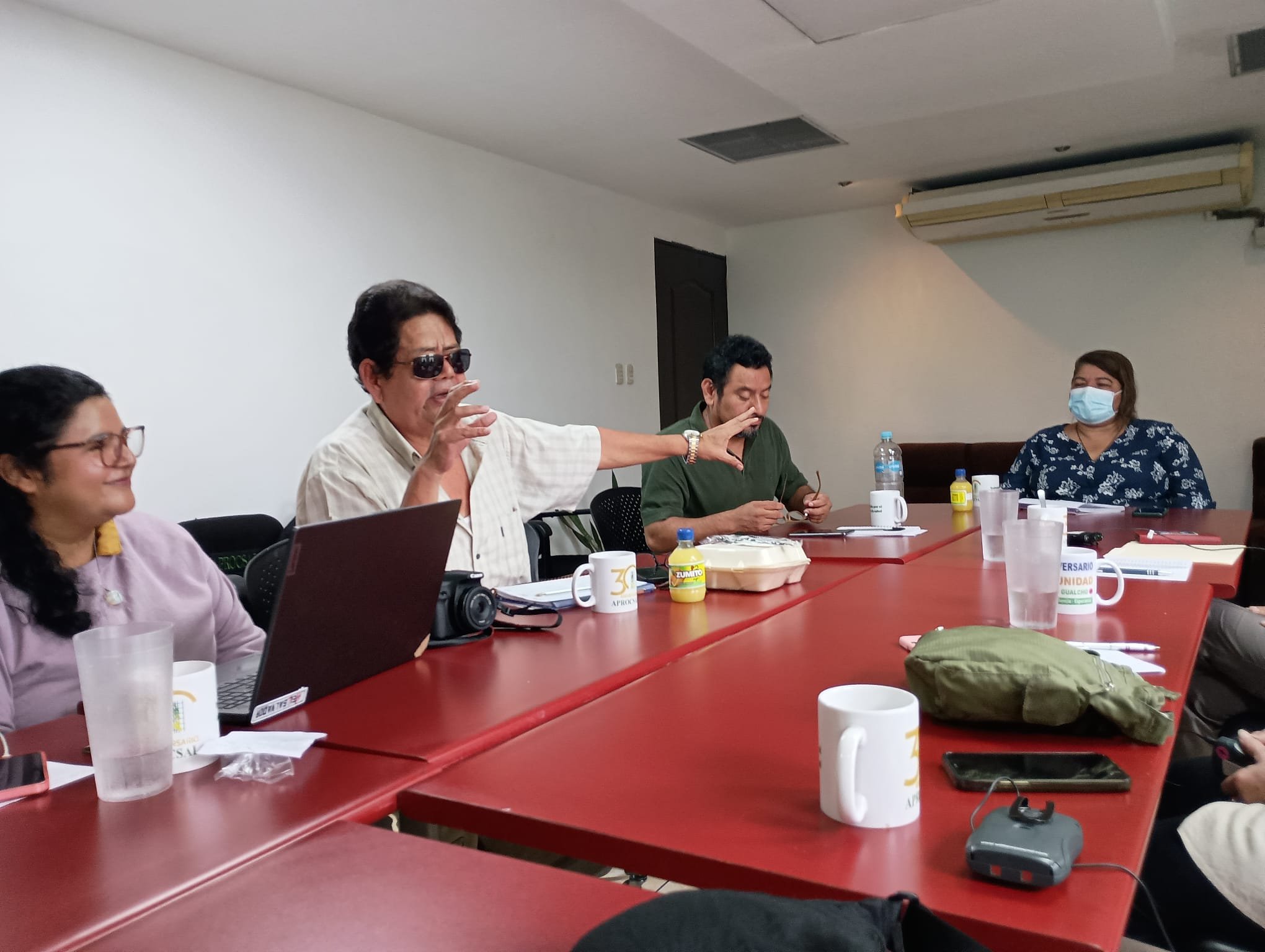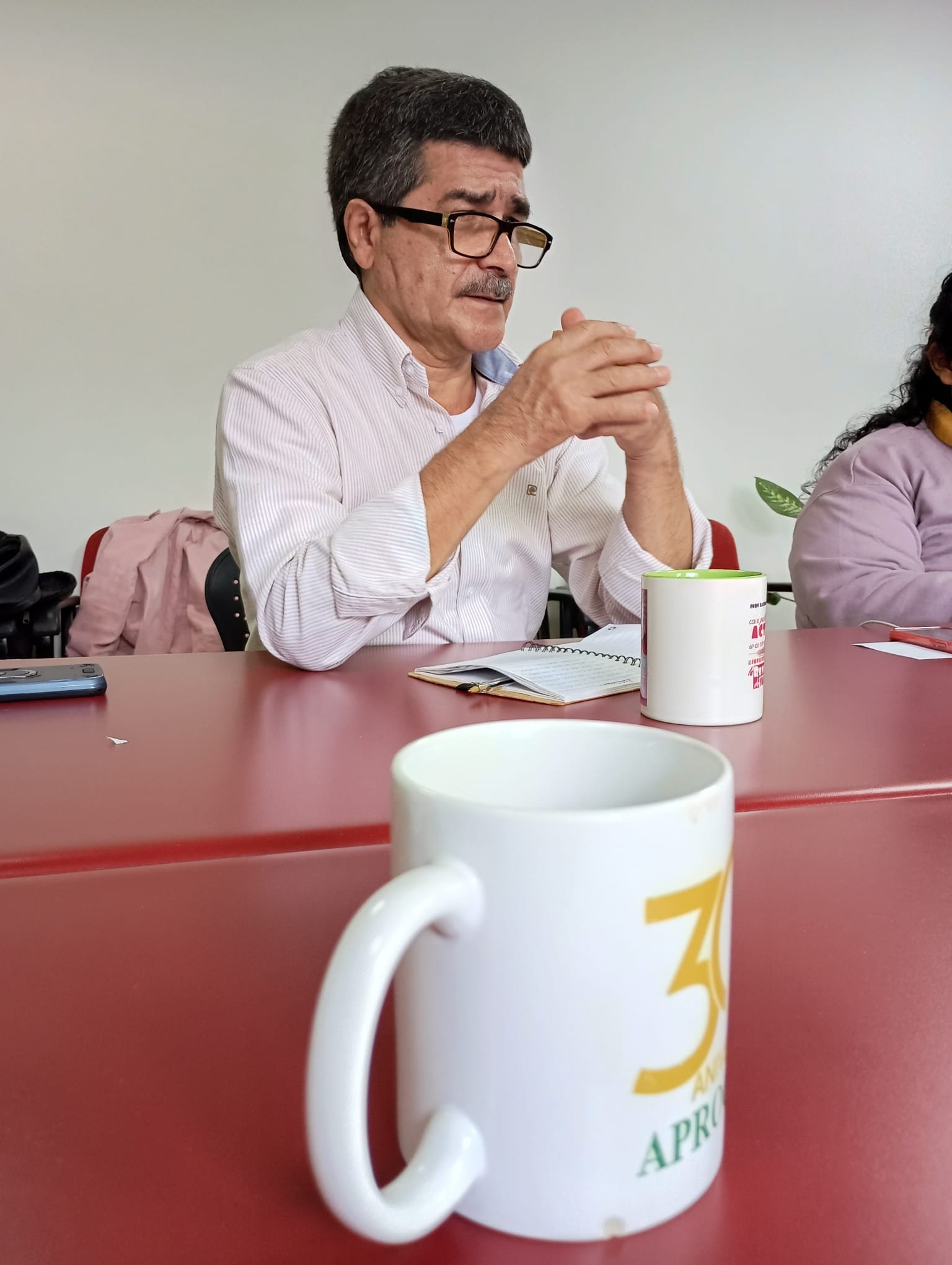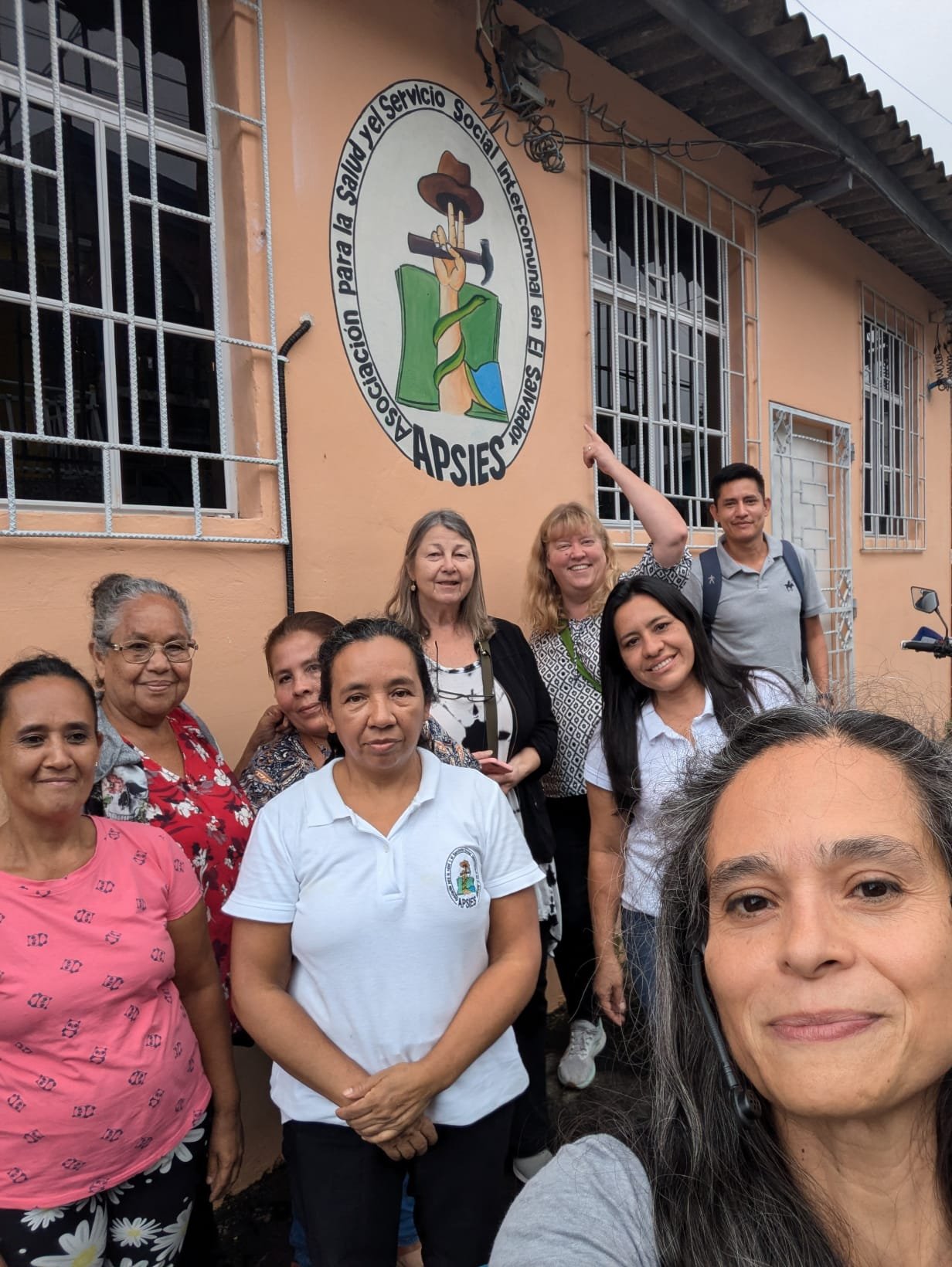Report prepared by Alexandra Henao-Castrillon, Education Program Director.
CoDev organized an unprecedented exchange of Latin American education partners in Sao Paulo, Brazil, last November. With the solidarity support of the BCTF, sixteen union representatives from nine teacher organizations were hosted by the Paulo Freire Institute (PFI) to participate in the third edition of the Paulo Freire Journey (PFJ). The Journey focused specifically on international solidarity among Latin American partners and with Canadian teachers’ unions.
Union representatives and facilitators gathered in Sao Paulo last November to participate in the Paulo Freire Journey.
Other activities included lots of formal and informal conversations and discussions among Latin American participants about challenges that affect their teacher organizations and educational communities. During one of the first sessions, we heard from compañera Niurka Gonzalez, SNTECD’s Secretary General, about how health and education have always been a priority for the Cuban government after the revolution, responding to their social project. Without the onslaught of a neoliberal agenda, teachers, education workers, and SNTECD have had the opportunity to focus their work on the quality of education and the improvement of teacher professional development. She explained that, for instance, “the work of Paulo Freire is studied and researched extensively by many university professors.”
In fact, those who have participated in the bi-annual Pedagogy Congress that SNTECD holds with international guests in Havana will remember that 90% of the presentations by Cuban teachers address pedagogical issues. In contrast, international guests often present on the challenges of privatization, educational vouchers, charter schools, the underfunding of public education, and so on. Niurka also highlighted how the U.S. blockade against Cuba has negatively impacted the living and working conditions of everyone on the island.
On the other hand, we had the opportunity to learn from compañero Jose Hidalgo, from FECODE, who invited participants to reflect on the great challenge teachers face today referring to how Neoliberalism has eliminated critical thinking from schools and imposed a standardized language, the language of productivity. As Neoliberalism has distorted the meaning of knowledge, of the curriculum, of the school according to the realities in Latin America, Jose highlights the importance of recovering pedagogy as the intellectual field of teaching, as the essence of teaching. He then explained:
“Neoliberalism has de-pedagogized the teaching profession. We must recover pedagogy as the essence of being a teacher, of the historical thinking of education, and of the dignity of the teaching profession. Neoliberalism has forced us to discuss the problem of severance pay, the problem of wages, the problem of survival, which is fundamental to the dignity of the teaching profession. But this struggle for survival has overshadowed and relegated the pedagogical struggle to a second place — the struggle for the meaning and content of education.”
Visit to the Florestan Fernandes National School of the Landless Workers’ Movement school.
Participants also shared common challenges, for example: Those from FMPR and Totlahtol Yoltok agreed on the need for decolonization, to confront U.S. imperialism for the former, and to change the foreign education system imposed on indigenous peoples for the latter. Participants from FMPR, SEC, and the Honduran Pedagogical and Social Collective shared the need to continue working to eliminate misogyny and homophobia within teacher organizations. Those from FECODE, FMPR, SEC, and SUTEP identified the need to defend public education from neoliberalism. Participants from ANDES, FMPR and SUTEP shared their interest in fair salaries and a dignified retirement for teachers and education workers. Finally, FECODE and FMPR participants encouraged others to create a regional power bloc, an international solidarity network to address and act together against challenges that affect them collectively, but where each member organization maintains its own political and cultural autonomy. Other challenges mentioned were migration, generational changes in teacher organizations, etc.
In addition, we heard from FMPR how their connection with local community groups grew and strengthened following the natural and political disasters of the past eight years, creating a solidarity network to coordinate efforts and respond to the neoliberal policies implemented by the government to address emergencies caused by hurricanes, earthquakes, and the COVID-19 pandemic. Together, they have fought against the privatization of public services such as water, electricity, education and social programs in Puerto Rico. SEC also shared about their collaboration with different sectors of the society to protest against a privatization wave with the current Costa Rican government that is affecting public services, like education and health, while crime rates grow.
Totlahtol Yoltok expressed their concerns about their need to integrate discussions on gender in the next proposal presented to CoDev as they are seeing growing numbers of femicides and gender-based violence against indigenous women in Veracruz, Mexico. And several hours more of exchanges among the Paulo Freire Institute and CoDev’s Latin American partners. They all agreed on the need to have more spaces like the Paulo Freire Journey to exchange with others facing the similar realities and challenges and to learn from each other’s fight.
Visit to Campos Salles Municipal Elementary School.
PFI also coordinated visits to educational projects that based their work on Freire’s principles and educational methods. We visited, first, the Florestan Fernandes National School of the Landless Workers’ Movement, which offers political education to its members and working-class organizers and educators from across Latin America and the world. Second, Campos Salles Municipal Elementary School, which has a history of promoting peace, democracy and social justice within itself but also in the neighborhood where it locates, Heliopolis. And third, UNAS (the Union of Centers, Residents’ Associations of Heliopolis), a non-profit organization that guides its work in the concept of the Educator Neighborhood, in which the neighborhood is a learning and teaching place and everything goes through education to build a more democratic and fair country. These visits allowed the international delegates to have the opportunity to chat with teachers and community leaders who have fiercely worked for the implementation and continuation of projects that seek to provide the conditions for more humane, inclusive and democratic teaching and learning experiences in both schools and communities.
In its third edition, the Paulo Freire Journey achieved its goal of providing a space for CoDev Education partners in Latin America to exchange experiences and knowledge, as well as foster connections and mutual support. Given that several partners work in isolation from other teacher organizations and/or discreetly within their own communities for various reasons, the exchanges in Sao Paulo provided them with a breath of fresh air and ideas. The Paulo Freire Institute generously offered its expertise to facilitate a space for dialogue, connections, and relationship-building among peers and colleagues, based on international solidarity.
As Padilha, one of the PFI facilitators, stated: "We need to create spaces for coexistence where people feel like subjects of history — subjects, not objects — and realize they can take the reins of history by reflecting on their own practice." Padilha then quoted Freire: "When a person does not oppose, they are in favor of the process of dehumanization."
It was an honor for CoDev to collaborate with the PFI and the BCTF to hold the Paulo Freire Journey, where we were able to deepen our understanding of a model of solidarity that involves actions based on a belief in one's own and others' dignity, and in the responsibility to fight for structural changes that promote mutual humanization. CoDev will continue to promote and facilitate international solidarity exchanges between Latin American and Canadian partners, and among themselves, so that they can strengthen their ties, learn from each other, and support one another.
Participant list:
Jose Restrepo and Luis Leguizamon, from the CEID-FECODE (Colombia)
Francia Briceno, the Women's Secretary, and Argerie Lopez, Executive Committee member, from SEC (Costa Rica)
Niurka Gonzalez, the Secretary General of SNTECD (Cuba)
Gloria Roque, the Women's Secretary, and Wendy Martinez, from ANDES 21 de Junio (El Salvador)
Bessy Berrios, Vice-president, and Concepcion Sierra, from PRICPHMA (Honduras)
Ramona Avila and Mirian Amador, the Women Teachers Collective, now called the “Berta Oliva de Nativi” Social and Pedagogical Collective (Honduras)
Rosa Leyzaquia, Gender and Equity Secretary of SUTEP (Peru)
Jeremy Rodriguez and Joshua Munoz, regional representatives of FMPR (Puerto Rico).









